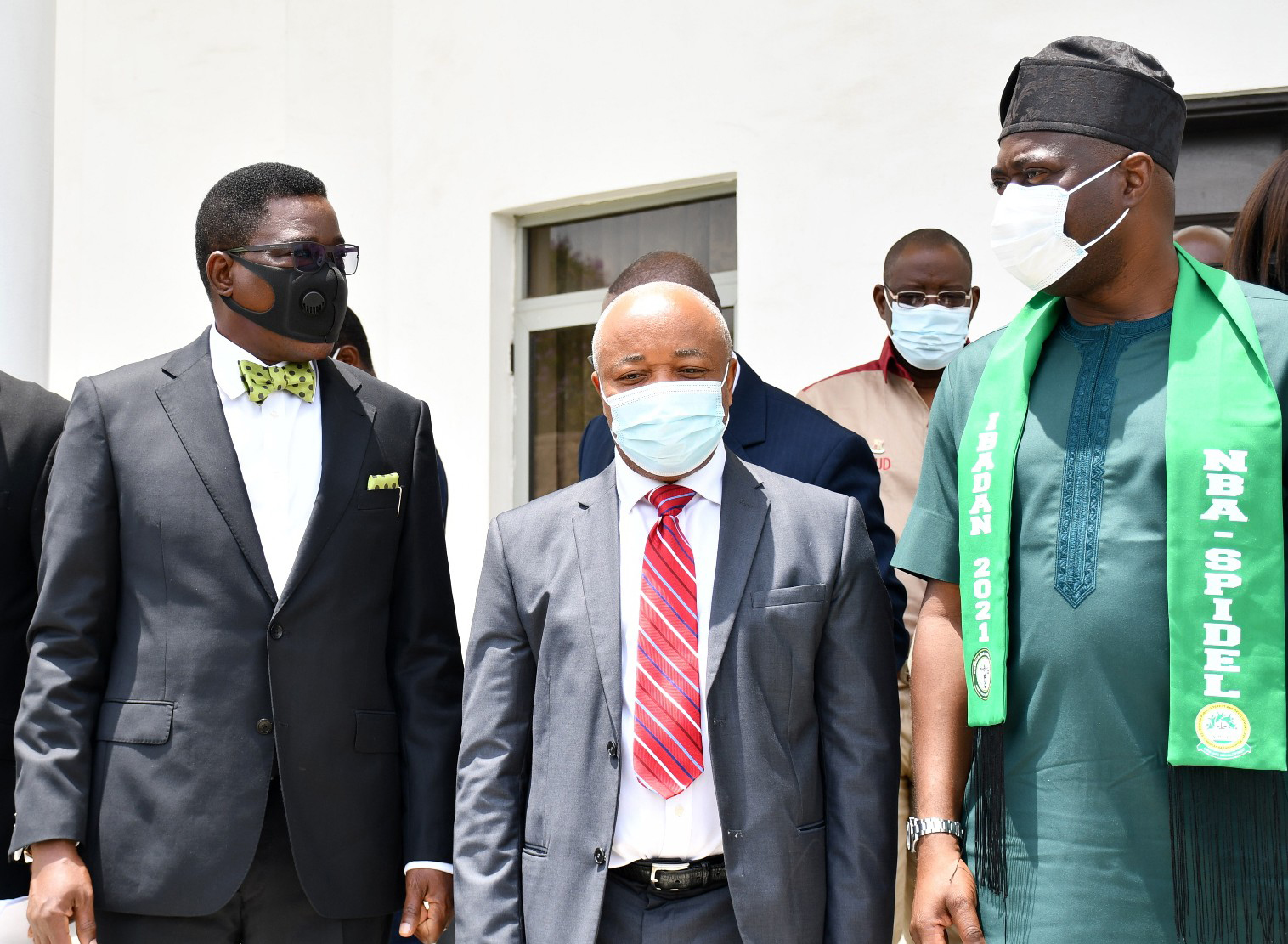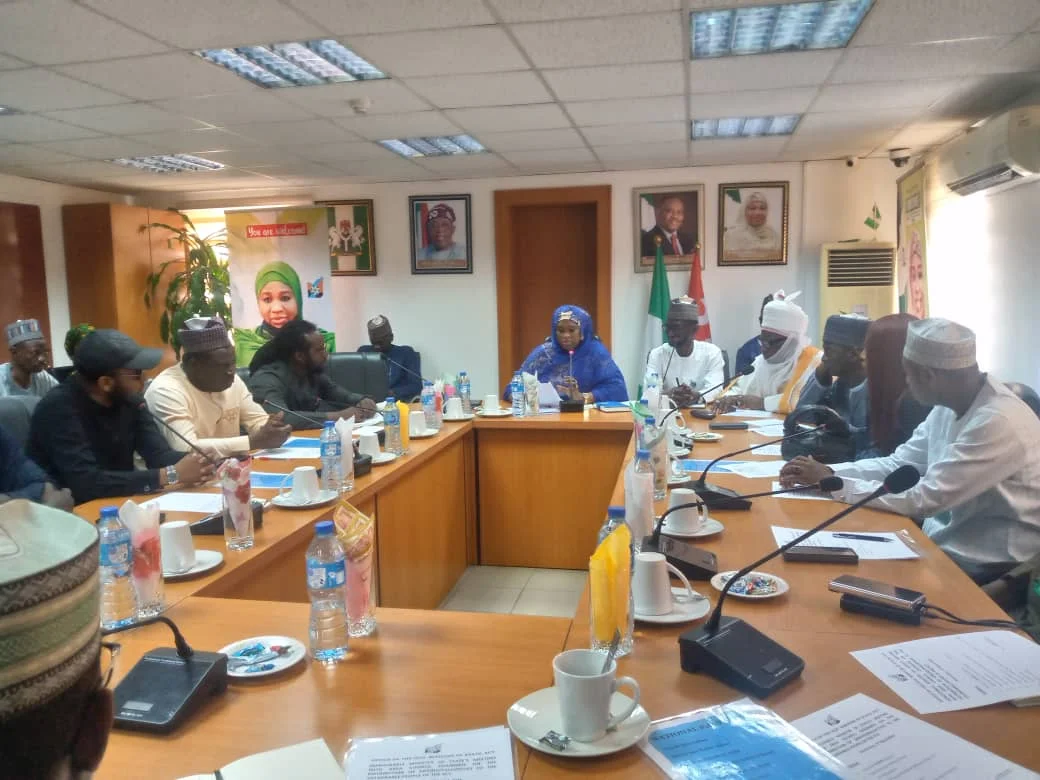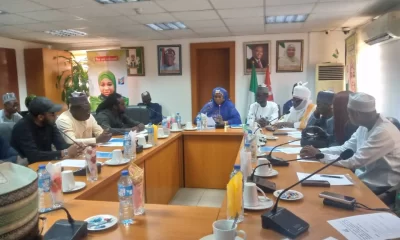Business
Port Partners Shippers’ Council On Training, Consultancy

The management of the Port of Antwerp yesterday offered training and consultancy opportunity on port efficiency to the Nigerian Shippers’ Council (NSC).
Manager, Port Projects, Port of Antwerp International, Mr Philippe Droes-beke, made this offer during a courtesy visit to the council in Lagos, noting that the opportunity would ensure Nigerian ports were modernised.
The Port of Antwerp is the port of the City of Antwerp, located in Flanders (Belgium), mainly in the province of Antwerp but also partially in the province of East Flanders.
It is a seaport in the heart of Europe accessible to capesize ships, reputed as Europe’s second largest seaport after Rotterdam.
Droesbeke said the port’s management was offering its experience and partnership to Nigerian institutions, organisations and companies in the maritime sector.
“We have a long lasting history in the Port of Antwerp and we are here to offer our experience and partnership with Nigerian institutions, organisations and companies in the maritime sector.
“We have a very good reference for cold chain, especially with perishables that will be offered for export,” he said.
He noted that multi-modality was an approach Nigeria should adopt as solution to congestion at Nigerian ports, urging the country to shift from the road to other modalities such as barges.
Droesbeke said The Port of Antwerp had the capacity of 140 million tonnes of cargo in a year due to its multimodal approach.
He explained that trains had 50 per cent, barges 40 per cent and trucks 10 per cent.
He urged the country to invest in its port, adding that with the steady growth in cargo flow, there was need to acquire the right equipment to achieve efficiency.
Responding, Executive Secretary, (NSC), Mr Hassan Bello, pointed out that the council was always interested in interconnectivity and having the country’s dry ports meet international expectations.
“We need to know how the dry port will look like in Nigeria economy, especially for our exports, as we want to make them export centres and the infrastructure that is necessary to make them full port.
“If they are port of destination or origin, they have to be well equipped with rail. We have one operating in Kaduna but the rail capacity is not anything to be proud of.
“There are others things that must be incorporated like consolidation centres, stripping of containers, warehousing, companies that processes and add value to agricultural products and also packaging companies.
“These and so many other things are areas in which we may have interest and we will study the course and discuss on the concept that needs to be adopted,” Bello said.
He added that Nigeria wanted a modern port, and so needed to start right from the beginning to have the indices that would ensure the country would not face the same challenges with previous ports.
Also speaking during the courtesy visit, the Executive Secretary, Nigerian-Belgian Chamber of Commerce in Lagos, Paulette Van Trier, expressed delight at the meeting, saying that the chamber had been working assiduously to improve trade between both countries.
“We are trying to ensure produce to the ports is timely so that the goods can get to the international market and spread all around the world.”
“We hope that we can work together, have a positive partnership, and improve exports from Nigeria, thanks to Shippers’ Council.
“As a chamber, we are not asking for money. We just want farmers and other exporters to know how the process is done globally.
“We are providing Nigerians with examples via teachings and trainings to make people aware of global best standards and practices,” Van Trier said.
Business
NCDMB Tasks Media Practitioners On Effective Reportage

Business
FCTA, Others Chart Path To Organic Agriculture Practices

The Federal Capital Territory Administration (FCTA) and other stakeholders have charted path to improved organic agriculture practices nationwide.
At a 2024 national organic and agroecology business summit held recently in Abuja, stakeholders took turn to speak on the additional areas of promoting the practices.
The Mandate Secretary, FCT Agriculture and Rural Development Secretariat (ARDS), Lawan Geidam, advocated for sustainable practice to develop resilient food systems that will benefit people.
The event, with the theme,”Towards Policies for Upscaling Organic Agroecological Businesses in Nigeria”, is aimed at fostering growth in the organic agriculture sector.
Geidam, who was represented by the Acting Director, Agric Services, in the Secretariat, Mr. Ofili Bennett, emphasised the success of organic and agroecological farming, reling on the active involvement of farmers, businesses and consumers.
He reassured attendees that the FCT Administration, led by the Minister, Nyesom Wike, and Minister of State, Dr. Mariya Mahmoud, remains dedicated to supporting initiatives that enhance the livelihood of residents.
Geidam described the partnership between the Secretariat and the organic and Agroecology initiative for a monthly exhibition and sale of organic products in the FCTA premises as a testament to this commitment.
“The ARDS remains committed to driving policies and initiatives that align with national goals and global standards”, Geidam said.
On her part, the Chairperson of Organic and Agroecology Initiative, Mrs. Janet Igho, urged residents to embrace healthy eating habits to sustain a good lifestyle. She stressed the importance of adopting organic practices, highlighting the benefits of going organic, growing organic and consuming organic products.
Igho expressed her optimism regarding the Agricultural Revival Programmes as articulated in President Bola Ahmed Tinubu’s “Renewed Hope Agenda”, which aims at fostering food and nutrition security.
She also extended her gratitude to ARDS for graciously allocating a space in the FCTA premises for the exhibition and sale of organic products, noting that the platform has been effectively used to advance the promotion of organic agriculture in FCT.
Igho outlined several benefits of organic agriculture which includes improved soil health, increased biodiversity, availability nutritious and healthy food and a reduced carbon footprint.
Stakeholders at the summit, underscored the critical need for enhanced private sector involvement and robust capacity building initiatives for farmers.
They highlighted the importance of implementing supportive policies to foster the growth of the organic agriculture sector.
In the light of the significant challenges facing Nigeria’s agricultural landscape, stakeholders decided that organic agricultural practices present sustainable solutions and a pathway for a more resilient and productive farming systems.
The three-day summit featured exhibitions showcasing organic foods, fruits, vegetables and fertilizers, providing an opportunity for residents to better appreciate the benefits of production and consumption of organic agricultural products.
Business
Dangote Refinery Exports PMS to Cameroon

-

 News5 days ago
News5 days agoNCDC Allays Fears Over COVID-19 XEC Variant
-
Business23 hours ago
NNMDA To Train 5m Nigerian Youths On Cassava Plantation
-
Women17 hours ago
Cooking And Its Importance To Women
-

 News5 days ago
News5 days agoSGF Asks Northerners To Wait For 2031 Presidency
-

 News5 days ago
News5 days agoTinubu Congratulates Ghana’s President-Elect, John Mahama
-
Niger Delta21 hours ago
Bayelsa, Rivers To Establish Joint Anti-Vandalism Taskforce On National Grid, Others
-

 Business17 hours ago
Business17 hours agoFCTA, Others Chart Path To Organic Agriculture Practices
-

 Business5 days ago
Business5 days agoNCDMB Recommits To Youths’ Capacity Building

